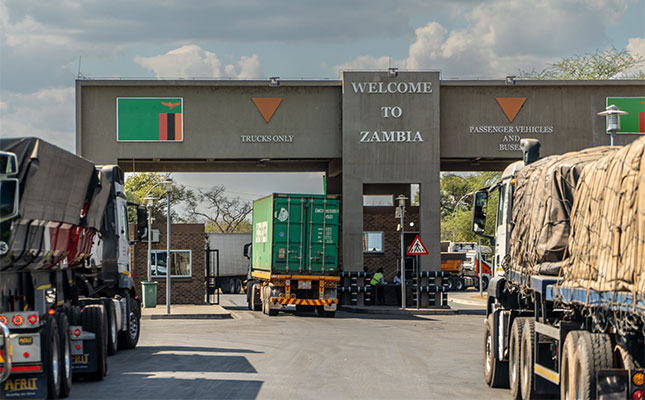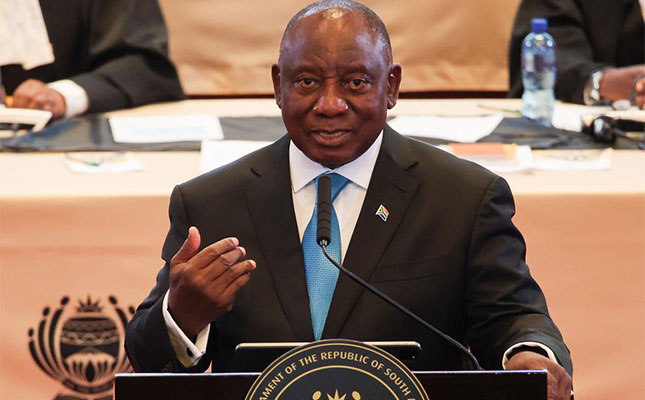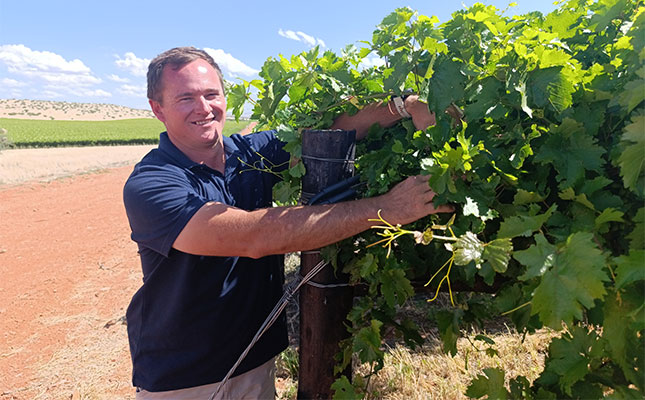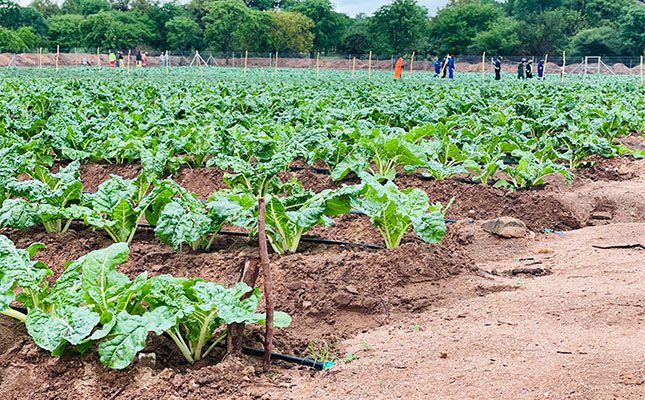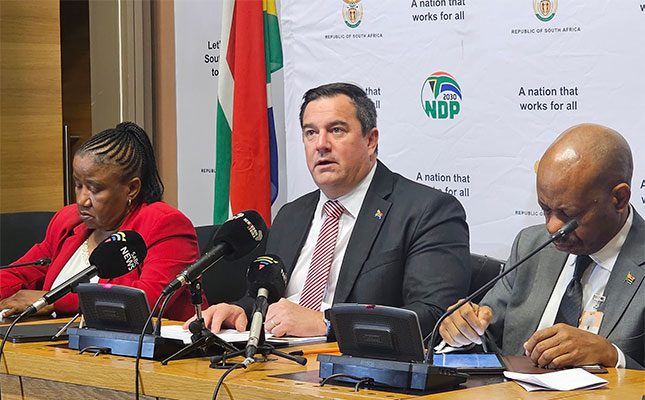
The aim of the briefing was to set out some of the steps government was taking to mitigate foot-and-mouth disease (FMD) outbreaks in the country, Steenhuisen said afterwards on social media.
In his address to the media, Steenhuisen referred to a report compiled following the FMD Indaba held in July in Pretoria, Gauteng. The report’s key focus areas included unifying FMD protocols under a national plan, rebuilding vaccine production capacity and training skilled staff, deploying rapid tests in the field, and reducing lab turnaround times.
It also emphasised the need to expand animal identification systems to regional benchmarks, strengthen research on local FMD strains and post-vaccination immunity, secure sustainable funding across the value chain, and reassess outdated or unsupported policies, such as fifth quarter disposal.
FMD task team
Steenhuisen also announced the establishment of an Industry-Government Task Team on Animal Disease Prevention, Management, and Control. He added that it would be chaired by Dr Emily Mogajane, chief director for Biosecurity Coordination in South Africa.
The team included senior veterinary officials from national and provincial departments; researchers from the Agricultural Research Council; and nominated industry experts, such as Professor Dietmar Holm (Faculty of Veterinary Science, University of Pretoria), Dr Dirk Verwoerd (infectious diseases specialist), and Dr Baty Dungu (member of the World Organisation for Animal Health Scientific Commission), among others.
According to Steenhuisen, the task team would report to value chain round-tables representing all sectors of the livestock economy.
Speaking to Farmer’s Weekly, Red Meat Industry Services CEO Dewald Olivier, said: “There are those who will say this is just another government task team, but it is not.
“It is made up of veterinarians and specialists and is based in science. It was informed by industry role players in all sectors – milk, meat, and wool. We consulted extensively with organisations and other role players to find out who they would want on the task team.”
Speaking about the overall state of FMD in the country, Steenhuisen said the Department of Agriculture (the department) had received reports of farmers either moving cattle that showed clinical signs of the disease or treating them privately without reporting through the correct channels.
He said these reported were “deeply concerning” and that the action of the farmers in question “not only contravene legal directives but risk entrenching FMD as endemic in South Africa”.
Steenhuisen urged all livestock farmers to co-operate fully with veterinary officials by reporting suspected FMD cases immediately to state veterinarians.
Commenting on the Steenhuisen’s statement, Olivier said it was important to clarify that when speaking about farmers moving the disease, the word ‘farmers’ was being used in the broad sense.
“What the minister has said does not apply just to farmers on the ground but to all value chain role players, because it is not only farmers who move their animals; it is the entire value chain,” he explained.
FMD status across the country
Speaking about current FMD infections, Steenhuisen said presently there were 274 unresolved outbreaks across KwaZulu-Natal, Gauteng, the Free State, North West, and Mpumalanga.
“Positive cases have been confirmed in all cattle farming systems: commercial beef herds, animal breeding, feedlots, dairy cattle, and communal herds. In KwaZulu-Natal, the outbreaks have continued to spread westward, with confirmed cases in the Dundee, Dannhauser, Newcastle, Alfred Duma, Okhahlamba, uMshwathi, eDumbe, and eMadlangeni local municipalities.”
However, he said, the disease appeared to have abated in the eastern part of the Disease Management Area (DMA), though 180 outbreaks remained open in the province.
Steenhuisen added that there were 54 active outbreaks currently in Gauteng, 26 in North West, nine in Mpumalanga, and five in the Free State.
He said the Northern Cape and Western Cape remained FMD-free, with no cases detected and no animals vaccinated.
“Veterinary services in these provinces continue to maintain vigilance, however, their success depends heavily on livestock owners adhering to movement restrictions and biosecurity requirements,” Steenhuisen said.
On the FMD vaccination drive, Steenhuisen said that for the current financial year, the department had procured 900 000 doses of the vaccine from the Botswana Vaccine Institute to the value of R72 million.
“The first 500 000 doses arrived in June and were used to vaccinate cattle in Kwazulu-Natal, Mpumalanga, Limpopo, Gauteng, North West, and the Free State. Just over a week ago, we received the remaining 400 000 doses, of which 50 000 [have already been] distributed. The remaining [350 000] doses will go to areas currently experiencing outbreaks,” he said.
Get trusted farming news from Farmers Weekly in Google Top Stories.
➕ Add Farmers Weekly to Google ✔ Takes 10 seconds · ✔ Remove anytime
